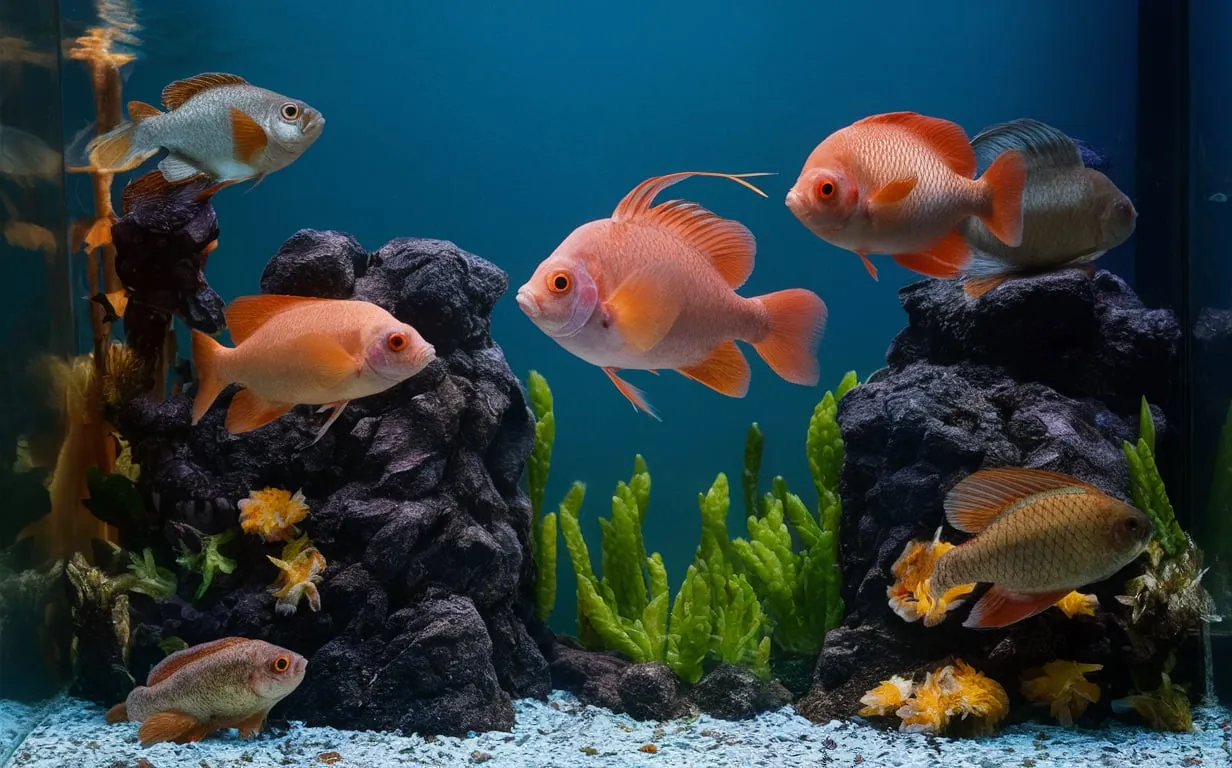Maintaining a healthy and odor-free fish tank can be a challenge, especially for those new to the world of aquarium keeping. The distinctive “fishy” smell that can often permeate a room with an aquarium is not only unpleasant but can also be a sign of an imbalanced ecosystem. However, with the right approach and a few simple steps, you can effectively eliminate fish tank odors and enjoy a clean, fresh-smelling aquatic environment.
In this comprehensive guide, Betta Fish Tips will explore the common causes of fish tank smells and provide practical, easy-to-implement solutions to keep your aquarium fresh and inviting. Whether you’re a seasoned fish enthusiast or just starting your aquarium journey, these tips will help you create a healthy, odor-free habitat for your beloved underwater friends.
Causes of Fish Tank Smell
The primary causes of fish tank odors can be attributed to several factors, including:
1. Uneaten Food and Waste Buildup
Leftover food and fish waste that accumulate in the tank can quickly decompose, leading to the release of foul-smelling compounds.
2. Bacterial Imbalance
An imbalance in the beneficial bacteria responsible for breaking down waste can result in the buildup of harmful compounds that contribute to the unpleasant odor.
3. Inadequate Filtration
Inefficient or clogged filtration systems can fail to effectively remove waste and debris, allowing them to build up and release unpleasant odors.
4. Overcrowding
Keeping too many fish in a tank can lead to an excess of waste and a disruption in the tank’s delicate balance, leading to a stronger fishy smell.
5. Poor Water Quality
Factors such as high ammonia levels, nitrite spikes, and pH imbalances can all contribute to the development of unpleasant odors in the aquarium.

How To Remove Fish Tank Smell
Now that we’ve identified the common causes of fish tank odors, let’s explore the steps you can take to effectively remove and prevent these unpleasant smells:
1. Perform Regular Water Changes
Consistent and thorough water changes are crucial for maintaining water quality and removing accumulated waste. Aim to change 25-30% of the tank water weekly.
2. Clean the Aquarium Thoroughly
Regularly clean the substrate, decorations, and walls of the tank to remove any buildup of debris and uneaten food. Use a gravel vacuum or siphon to thoroughly clean the bottom of the tank.
3. Maintain a Healthy Filtration System
Ensure that your filtration system is working efficiently by cleaning or replacing filter media as recommended by the manufacturer. Consider upgrading to a more powerful filter if the current one is struggling to keep up with the tank’s waste.
4. Manage Feeding and Avoid Overfeeding
Feed your fish the appropriate amount of food and remove any uneaten leftovers promptly. Overfeeding can lead to excessive waste buildup and contribute to unpleasant odors.
5. Monitor Water Parameters and Maintain Optimal Conditions
Regularly test your water parameters, such as ammonia, nitrite, nitrate, and pH, and make adjustments as needed to maintain a balanced ecosystem. This will help prevent the buildup of harmful compounds that can cause odors.
6. Consider Activated Carbon
Introducing activated carbon to your filtration system can help remove organic compounds and improve water clarity, effectively reducing fishy odors.
7. Properly Dispose of Waste
When performing water changes or cleaning the tank, be sure to dispose of the waste in an appropriate manner, such as flushing it down the toilet or using a specialized waste disposal system.
8. Maintain a Healthy Plant Population
Live aquarium plants can help absorb excess nutrients and compete with algae, which can contribute to unpleasant odors. A well-planted tank can help maintain a balanced ecosystem.
9. Avoid Overloading the Tank
Resist the temptation to overcrowd your aquarium, as this can lead to an imbalance in the ecosystem and the buildup of waste, leading to foul odors.
10. Consider Beneficial Bacteria Supplements
Introducing beneficial bacteria supplements to your tank can help establish a healthy microbial balance, improving the breakdown of waste and reducing unpleasant odors.
By implementing these strategies, you can effectively eliminate fish tank smells and enjoy a clean, fresh-smelling aquarium that provides a thriving environment for your underwater companions.
Conclusion
Maintaining a fish tank that is free of unpleasant odors requires a combination of consistent maintenance, water quality management, and a balanced ecosystem. By understanding the common causes of fish tank smells and following the tips outlined in this guide, you can create a healthy, odor-free aquarium that is a delight to own and observe.
Remember, a well-maintained fish tank not only looks visually appealing but also contributes to the overall well-being of your aquatic inhabitants. Embrace these techniques and enjoy the beauty and tranquility of a fresh-smelling, thriving aquarium.

Bài viết liên quan
How Old Do Betta Fish Live?
Betta fish, also known as Siamese fighting fish, are a popular choice for aquarium enthusiasts [...]
Jul
How Long Can A Betta Fish Live Without A Filter?
As a responsible betta fish owner, ensuring your pet’s wellbeing is of utmost importance. One [...]
Jul
Understanding Betta Fish And Bubbles
Betta fish, also known as Siamese fighting fish, are a popular choice for aquarium enthusiasts. [...]
Jul